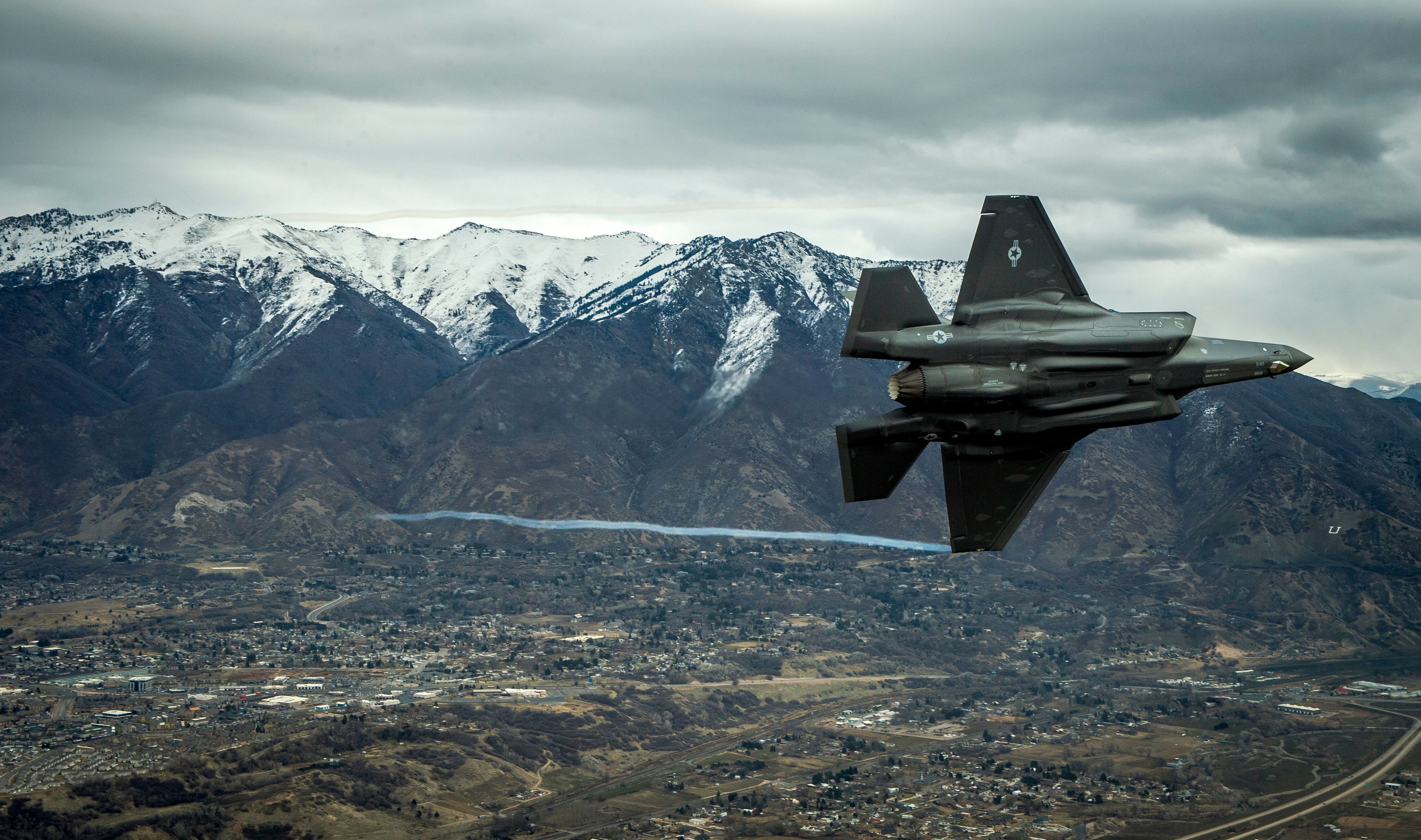The Biden administration is making a critical mistake by moving vital military assets away from the Middle East. Drawing down America’s posture in the Middle East sends the wrong message as the administration simultaneously pursues nuclear negotiations with Iran, the region’s most dangerous aggressor. To prevent Iran and its proxies from taking advantage of the resulting vulnerabilities, Washington must work closely with its partners to expand defensive and offensive capabilities throughout the region.
Reportedly, the Pentagon has already removed at least three Patriot anti-missile batteries from the Gulf region, including one positioned at Prince Sultan Air Base in Saudi Arabia. The administration is looking to remove additional military hardware, including an aircraft carrier strike group and surveillance systems.
However, the president’s drawdown from the Middle East undercuts his interim national security guidance to “right-size our military presence to the level required to disrupt international terrorist networks, deter Iranian aggression, and protect other vital U.S. interests.”
Iran and its proxies have launched frequent attacks in Iraq and Saudi Arabia that signal they are undeterred and capable of assaulting America’s regional interests. With fewer military assets capable of defending against such attacks or launching retaliation when they occur, Tehran and its proxies are likely to escalate further.
Redeploying these assets not only leaves America’s regional partners with insufficient defenses but also reduces offensive capabilities that could deter or retaliate against Iranian-linked aggression. While the Biden administration deserves credit for launching airstrikes against Iranian-backed militias and sending B-52 aircraft flyovers to the region, these moves have not deterred further attacks.
President Joe Biden’s decision comes after his administration cut off support for the Saudi-led offensive against the Houthis in Yemen, suspended recent arms sales and publicized an intelligence report on Saudi Crown Prince Mohammed bin Salman’s culpability for the murder of Jamal Khashoggi.
RELATED

The Biden administration is also undertaking a global posture review that is likely to emphasize strategic competition with China in the Indo-Pacific region. Yet, the Biden administration need only look at dynamics in the Middle East to see great power competition playing out.
As Washington is striving to scale back its engagement in the Middle East, Beijing is rapidly expanding its influence throughout the region with significant investment and acquisition deals, notably in Israel, Saudi Arabia, the United Arab Emirates and Iran. While America’s partners currently rely heavily on U.S. diplomatic, military and financial support, their perception of an American retrenchment from the Middle East could increasingly motivate them to turn to China.
Indeed, it looks like Iran’s military leadership has already gotten the message. Brig. Gen. Mohammad Hejazi, deputy commander of the Islamic Revolutionary Guard Corps’ Quds Force, claimed Biden’s recent decision is “the beginning of their [the United States’] exit and expulsion from the region.”
The Biden administration must undercut this belief with additional military support to the region. The Pentagon is reportedly exploring increasing in the Middle East its deployment of defensive weapons, intelligence sharing, training missions and military exchange programs. However, these measures cannot deter the rapid expansion of Iranian aggression in the region.
In the immediate term, the United States should hold Iran and its proxies accountable for their actions. Biden should order additional military force against those responsible for attacks on Americans, its partners or their interests. Simultaneously, the Pentagon should keep America’s adversaries guessing by having carrier groups in the Indo-Pacific region and Europe unpredictably travel through the Middle East.
Washington should also work with its regional partners to develop integrated air and missile defense capabilities to guard against Iranian and Iranian-linked attacks.
For starters, U.S. Central Command should quickly expand efforts to interdict Iranian arms on their way to Yemen and Iraq. U.S. officials at the Department of Defense and State Department should also communicate with their Saudi, Israeli, Egyptian and Jordanian counterparts to develop shared early-warning radar systems in the Red Sea.
Similarly, the Department of Defense should increase its joint military training with regional partners and collaborate to create a regional, multilayered air defense system. Israel already has a multitiered air defense system with short-, medium- and long-range capabilities that could help protect interests elsewhere in the Middle East.
Meanwhile, the Arab Gulf states provide an excellent location for intelligence, surveillance and reconnaissance on Iran and the Houthis in Yemen.
To implement such a defensive architecture, America and its partners should expand their joint research and development of adaptable, cost-efficient air and missile defense technologies, such as directed-energy and unmanned platforms.
In addition to these efforts, the U.S. Army should expedite its deployment of the two Israeli Iron Dome systems it recently acquired, and it should rapidly procure Israel’s David’s Sling interceptor. According to the U.S. director of air and missile defense, Brig. Gen. Brian Gibson, the Army has been testing and training the Iron Dome batteries, which should be ready for use by the end of 2021.
While drawing down America’s capabilities in the Middle East is a mistake, there are options to improve regional stability and prevent Iran from taking advantage of the situation. Indeed, taking immediate steps to strengthen partners’ offensive and defensive capabilities could improve America’s regional posture, even as its focus is increasingly elsewhere.
Retired Vice Adm. John W. Miller served as commander of the U.S. Navy’s 5th Fleet. He is a participant in the Jewish Institute for National Security of America’s 2018 Generals and Admirals Program.








